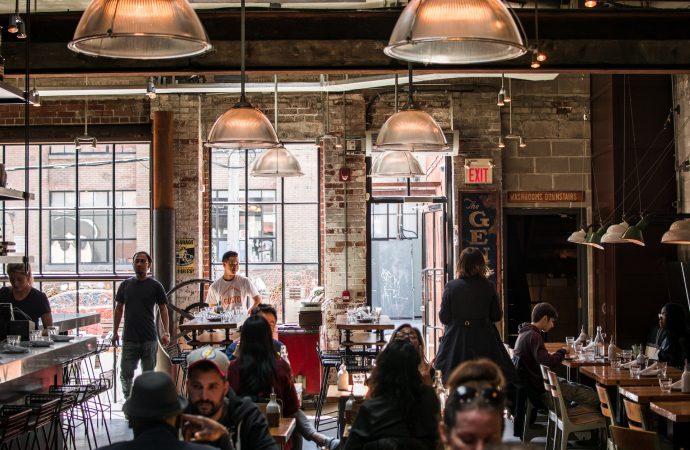Introduction: The Rise of No-Show Policies In recent years, a growing number of top British restaurants have implemented a controversial policy: the no-show policy. To follow this policy, customers who don’t show up for their reservations must give some money. This practice aims to address the issue of no-shows, which has long plagued the restaurant
Introduction: The Rise of No-Show Policies
In recent years, a growing number of top British restaurants have implemented a controversial policy: the no-show policy. To follow this policy, customers who don’t show up for their reservations must give some money. This practice aims to address the issue of no-shows, which has long plagued the restaurant industry, causing financial losses and operational challenges. Lastly, the changing reservation landscape is explored no-show policy.
The Controversy: Balancing Fairness and Profitability
The dining community is disagreeing a lot about using no-show policies. Critics claim that these policies are strict and can dishearten diners from making reservations. They believe that unforeseen circumstances can lead to missed reservations and imposing fees is unfair. Nevertheless, supporters claim that no-show policies are essential for the success of restaurants, allowing them to avoid empty tables and generate maximum revenue. Balancing fairness towards diners and the financial sustainability of restaurants is a complex challenge that requires careful consideration.

Photo by No Revisions on Unsplash
Reasons Behind Implementing No-Show Policies no-show policy
No-show policies in restaurants serve various purposes. We need to acknowledge the financial effect of no-shows. Restaurants invest significant resources in preparing for reserved tables, and empty seats translate into lost revenue. Having no-show policies at restaurants helps make sure people are accountable. This encourages them to either keep their reservations or cancel them when needed. Secondly, these policies allow restaurants to optimize their operations, better plan staffing and inventory, and provide an enhanced dining experience for those who show up as planned.
Impact on Restaurant Operations and Revenue no-show policy
Restaurant operations and the money they make can be heavily influenced by policies that deal with customers not showing up. By reducing the occurrence of customers not showing up, restaurants can be more organized and minimize any unnecessary waste. By having no-show policies, businesses can prevent losing money and increase their overall profitability. In addition, when these policies are put into practice, it demonstrates to diners the significance of honoring reservations and the efforts involved in operating a restaurant.
Diner Perspectives: Understanding the Concerns
There are diverse opinions from diners regarding the policies on no-shows. Some argue that life is unpredictable, and unexpected circumstances can prevent them from honoring their reservations. A common belief is that by implementing fees, it could deter individuals from making reservations beforehand. Many individuals realize the struggles that restaurants experience and believe that having fair rules is necessary to tackle the problem of no-shows. Creating an environment of understanding and relieving diner concerns is possible for restaurants by practicing communication, flexibility, and transparency.
Restaurant Perspectives: Maintaining Viability
From a restaurant’s perspective, implementing no-show policies is essential for maintaining financial viability. Restaurants operate on slim profit margins, and no-shows can have a severe impact on their bottom line. No-show policies encourage responsible behavior among diners, reduce revenue loss, and contribute to the overall sustainability of the business. Yet, restaurants need to be fair by enforcing their rules while also considering that sometimes there are valid reasons why customers can’t come.
The Changing Reservation Landscape
No-show policies are becoming more common as the way people reserve things is changing. As restaurants face increasing competition and strive for operational efficiency, innovative solutions are being explored. Reservation management greatly benefits from using technology in restaurants. It enables them to make the most out of their available seats and decrease instances where customers fail to appear. As consumers’ expectations shift towards a more accountable dining experience, restaurants are responding by offering enhanced reservation systems, communication channels, and policies.





















Leave a Comment
Your email address will not be published. Required fields are marked with *